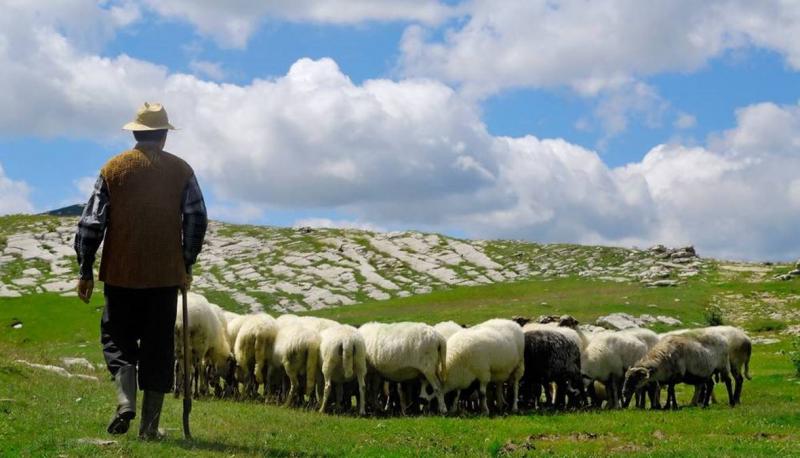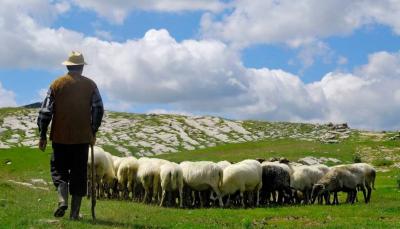The pastures in southern Lebanon have remained ideal lands for feeding local herders' flocks for centuries, but they have now become extremely prohibited and dangerous areas for shepherds and herds of sheep and cattle due to Israeli airstrikes and artillery fire. Ali Bibar, who owns a flock of 350 sheep, stated, "We all graze in the land of Mays al-Jabal and in the land of Hula... but with the bombings today, it is no longer possible to approach." The flock is now crammed inside a metal barn in the town of Majdel Selm, located about seven kilometers west of the pasture. Bibar (57 years old) walks the flock briefly each day, but he had to purchase stacks of hay to feed the flock at a cost of around $2000. He added, "The remaining hay is enough to feed them for two or three days; after that, I will have to borrow to feed them."
Fires caused by the bombings have burned olive trees and agricultural land across southern Lebanon, causing severe damage to shepherds and farmers who are already suffering under the weight of a four-year economic collapse. Jihad Said (45 years old) told Reuters that he moved his flock to the town of Ramish after losing three cows in an Israeli bombing earlier this month on a farm on the outskirts of the town. Two Lebanese shepherds were also found dead after they were shot by Israeli forces earlier this month.
Lebanese shepherds have long learned how to coexist with the tensions across the border between Lebanon and Israel. The Israeli army often interrogates those who dare to approach the border too closely. Bibar mentioned that Israel has detained him twice. The war that lasted a month between Israeli forces and Hezbollah in 2006 severely affected farmers. Tony Al-Aamal told Reuters that the war prevented him from harvesting five hectares of wheat and barley. However, this time he stayed in the south during the first two weeks of the bombings, then took his flock of 100 heads to the outskirts of the Lebanese capital, Beirut.




